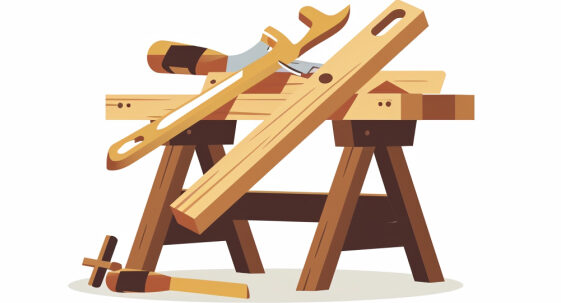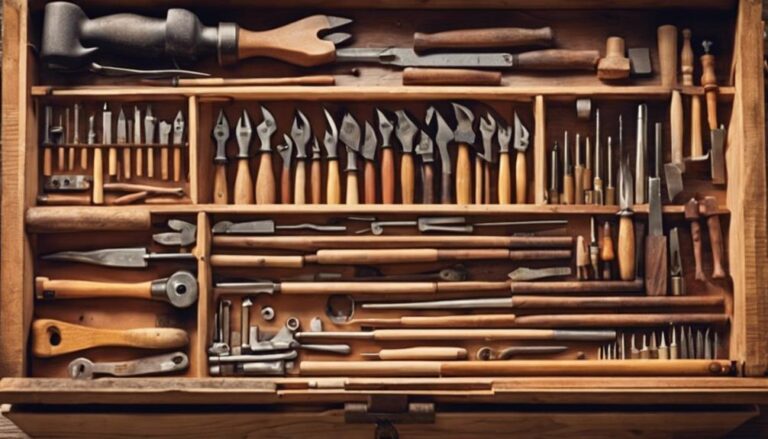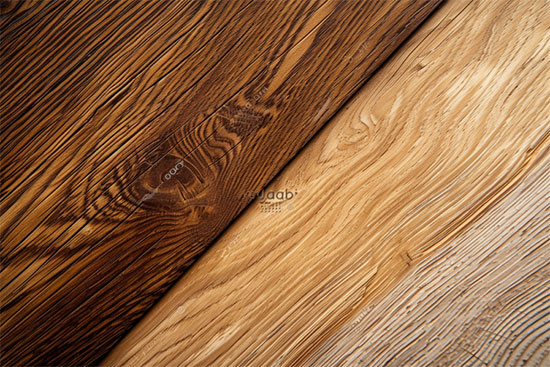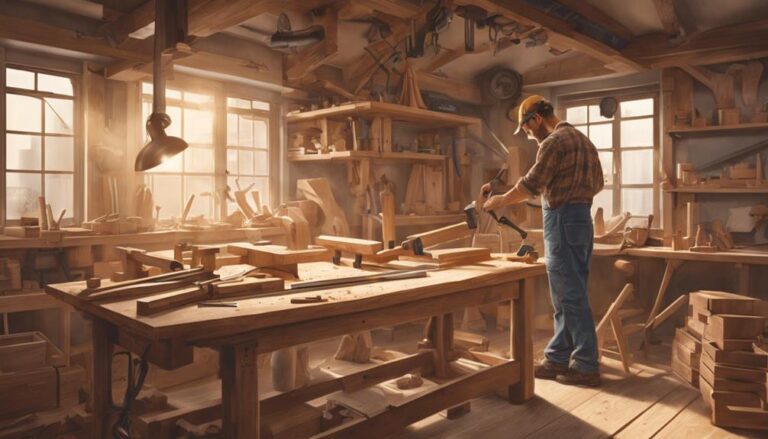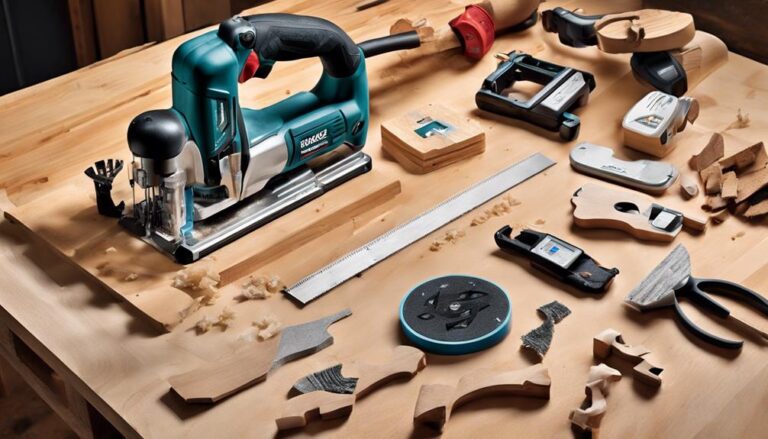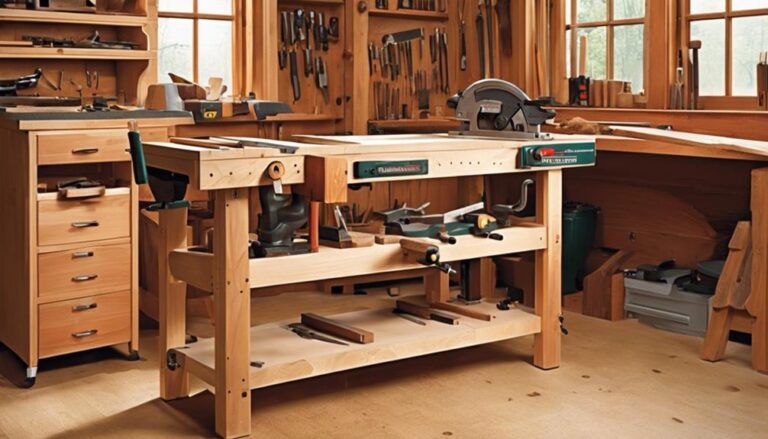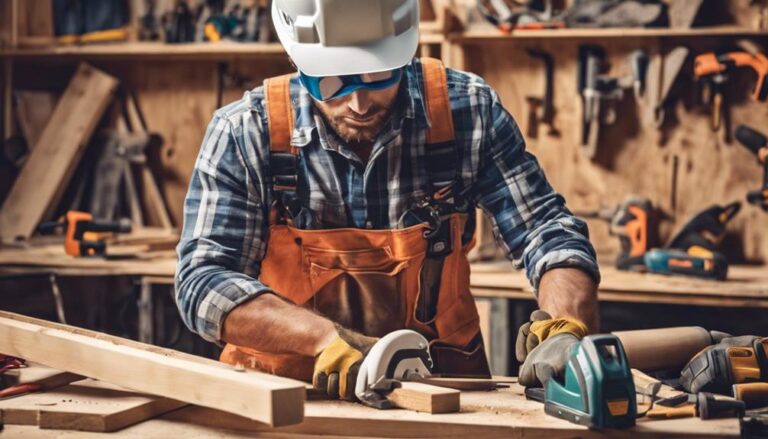Did you know that, according to industry studies, the right choice of decking material can increase your home’s value by up to 10%?
Among the contenders, woods like cedar, redwood, tropical hardwoods, and pressure-treated lumber stand out for their durability and aesthetic appeal. Each of these materials brings its own set of advantages and quirks to the table, from cedar’s natural resistance to decay to the unmatched longevity of ipe.
However, selecting the most durable wood for your decking project isn’t just about longevity; it’s also about how the material complements your home’s design and withstands your local climate. To make an informed decision, you’ll need to weigh these factors carefully.
Contents
Ipe: The Premier Choice
When choosing the most durable wood for your decking project, Ipe stands out as the premier choice due to its exceptional hardness and natural resistance to decay.
As an exotic hardwood with a Janka hardness rating of 3,510 pounds, Ipe boasts remarkable durability. It’s not just tough; it’s also termite-resistant and rot-resistant, ensuring your deck withstands the test of time with minimal upkeep.
Despite its challenging nature to work with, the low maintenance and 25-year warranty it offers make it an attractive option. Additionally, selecting Ipe that carries the Forest Stewardship Council (FSC) trademark guarantees you’re choosing a responsibly harvested material.
This commitment to quality and sustainability cements Ipe’s status as the premier choice for durable, long-lasting decks.
Cedar: Naturally Resistant
Cedar’s natural resistance to moisture, rot, and insects makes it an ideal choice for your outdoor decking project. Its ability to adapt to atmospheric changes ensures durability and longevity in various climates. Plus, cedar is easy to stain, allowing you to enhance its natural beauty and match it to your outdoor space’s aesthetic. With a lifespan of 15-20 years, cedar offers reliable longevity for your decking needs.
| Feature | Benefit |
|---|---|
| Moisture Resistant | Prevents water damage and warping |
| Rot & Insect Resistant | Ensures structural integrity over time |
| Easy to Stain | Allows for aesthetic customization |
| Natural Beauty | Adds a warm, welcoming look to outdoor spaces |
Its aromatic properties not only contribute to a pleasant scent but also add to the overall welcoming environment of your outdoor decking area.
Redwood: Timeless Durability
Shifting the focus to another excellent material, consider redwood for its legendary durability and unique aesthetic appeal in decking projects. Redwood stands out not just for its beauty but also for its resistance to environmental challenges that can compromise the integrity of less durable woods.
- Moisture Resistant: Redwood’s natural oils protect it against moisture, reducing the risk of warping and splitting.
- Rot and Insect Resistant: Its inherent properties fend off decay and deter insect infestations.
- Long-lasting: With appropriate care, a redwood deck can grace your outdoor space for up to two decades.
- Sustainable and Environmentally Friendly: Opting for redwood is a choice in favor of sustainability, given its rapid regeneration rate.
Tropical Hardwoods: Exotic Strength
Have you considered the remarkable resilience of tropical hardwoods like ipe, cumaru, and tigerwood for your decking needs? Tropical hardwoods boast exotic strength, making them a top choice for those seeking long-lasting luxury. Their dense nature makes them resistant to rot, insects, and moisture, ensuring your deck remains in pristine condition for years. However, their density also means they’re challenging to work with and require specific penetrating oil-based stains for maintenance.
| Wood Type | Maintenance Level | Durability |
|---|---|---|
| Ipe | High | Very High |
| Cumaru | Moderate | High |
| Tigerwood | High | High |
While expensive, these woods provide a unique appearance that justifies the cost. Opting for tropical hardwoods means investing in an exotic and durable decking solution that stands the test of time.
Pressure-Treated Wood: Affordable and Tough
For an economical yet sturdy decking choice, consider pressure-treated wood, renowned for its resilience to decay and pests. Made primarily from southern yellow pine or Douglas fir, this wood undergoes a rigorous chemical treatment process, enhancing its durability against outdoor threats.
- Affordability: Pressure-treated wood offers a cost-effective solution without compromising on quality.
- Availability: Easily found in most home improvement stores, making it a go-to option for many deck builders.
- Resistance: Engineered to withstand fungus, bugs, and rot, ensuring a longer lifespan.
- Maintenance: While it’s prone to splitting and warping, regular power washing and annual treatments with wood preservatives can keep it tough and enduring.
With these qualities, pressure-treated wood remains a popular choice for decking, combining practicality with resilience.
Conclusion
In wrapping up, you’ve got options when it comes to decking durability. Ipe stands out for its unmatched toughness, while cedar offers natural resistance to decay. Redwood brings a classic durability with its unique aesthetics.
For an exotic touch, tropical hardwoods deliver unparalleled strength. And don’t overlook pressure-treated wood; it’s both affordable and durable. Your choice hinges on balancing aesthetics, maintenance, and cost.
Consider these factors carefully to ensure your deck withstands the test of time and the elements.
